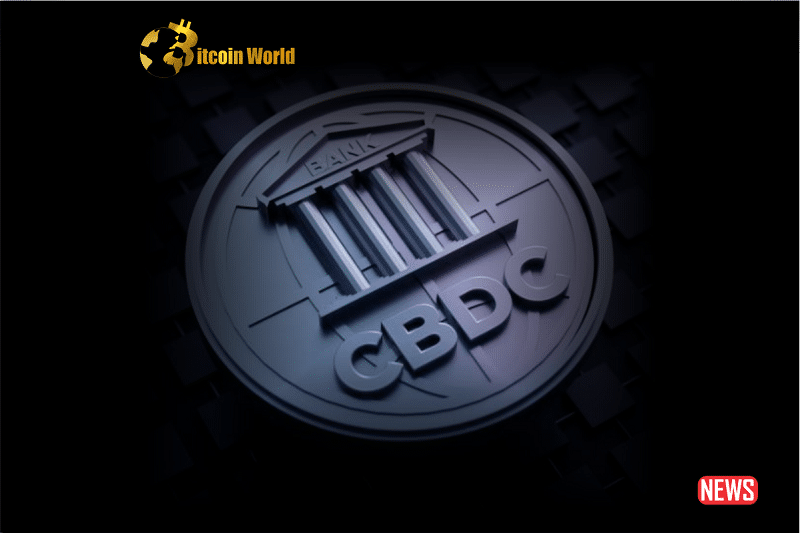Are you concerned about the future of your financial freedom? Florida Governor Ron DeSantis is raising serious questions about the potential impact of a United States Central Bank Digital Currency (CBDC). His message is clear: a US CBDC could fundamentally shift the balance of power, giving the government unprecedented control over your money.
What’s Got DeSantis Worried About a Digital Dollar?
DeSantis has been vocal about his apprehension regarding a US CBDC, arguing it presents a significant threat to individual liberty. In a recent speech at Fort Myers Technical College, he didn’t mince words, stating that a digital dollar could grant the government an alarming level of control over how Americans spend their hard-earned money.
His primary concern boils down to this: a CBDC could enable the federal government to monitor every single transaction you make in real-time and even prevent you from making certain purchases. Imagine a scenario where your spending habits are constantly scrutinized, and the government has the power to block transactions they deem inappropriate. This isn’t just a hypothetical concern for DeSantis; he sees it as a tangible risk to financial independence.
As DeSantis himself articulated, this kind of system is “fundamentally incompatible with the existence of a free society.” He believes that while the government might present a CBDC with seemingly benevolent justifications, its true nature is that of a “wolf in sheep’s clothing,” designed to centralize power at the expense of individual consumers.
The Core Argument: Government Control vs. Financial Freedom
DeSantis’s stance hinges on the fundamental tension between government oversight and individual financial autonomy. He paints a picture where a CBDC could erode the very principles of a free market, where individuals have the right to conduct business without constant government surveillance. This perspective resonates with many who value privacy and the freedom to manage their finances without interference.
Taking Action: Florida Draws a Line in the Sand
DeSantis hasn’t just been voicing concerns; he’s taken concrete action. Last week, he signed a law in Florida specifically designed to prohibit the use of CBDCs within the state. This legislation amends the state’s definition of money to explicitly exclude central bank digital currencies, sending a clear message about Florida’s position on the matter.
Why This Matters: The Potential Implications of a CBDC
The debate surrounding CBDCs is complex, with potential benefits and drawbacks. Understanding both sides is crucial.
Potential Challenges of a CBDC, According to Critics Like DeSantis:
- Loss of Privacy: Every transaction could be tracked by the government.
- Government Control: The ability to restrict or block transactions based on government policy.
- Erosion of Financial Independence: Reduced autonomy over personal finances.
- Potential for Censorship: Limiting purchases based on political or social views.
- Centralized Power: Shifting financial power from individuals to the central bank.
Potential Benefits Often Highlighted by Proponents of CBDCs:
- Increased Efficiency: Faster and cheaper transactions.
- Financial Inclusion: Providing access to digital payments for underserved populations.
- Reduced Risk of Illegal Activities: Easier tracking of illicit transactions (though this also raises privacy concerns).
- Modernization of Payment Systems: Keeping pace with technological advancements.
The Big Question: Where Do We Go From Here?
The introduction of a US CBDC is far from a done deal, and the debate is likely to continue. DeSantis’s strong opposition highlights the deep-seated concerns about government overreach and the importance of safeguarding individual financial freedom. His actions in Florida could serve as a blueprint for other states with similar reservations.
In Conclusion: Navigating the Future of Finance
The discussion surrounding a US CBDC is a critical one, with significant implications for every American. Governor DeSantis’s warnings serve as a potent reminder of the potential trade-offs between technological advancement and individual liberties. As the future of finance unfolds, it’s crucial to engage in informed discussions and ensure that any changes prioritize the principles of a free and open society. The question remains: can we harness the potential benefits of digital currency without sacrificing fundamental freedoms?
Disclaimer: The information provided is not trading advice, Bitcoinworld.co.in holds no liability for any investments made based on the information provided on this page. We strongly recommend independent research and/or consultation with a qualified professional before making any investment decisions.


